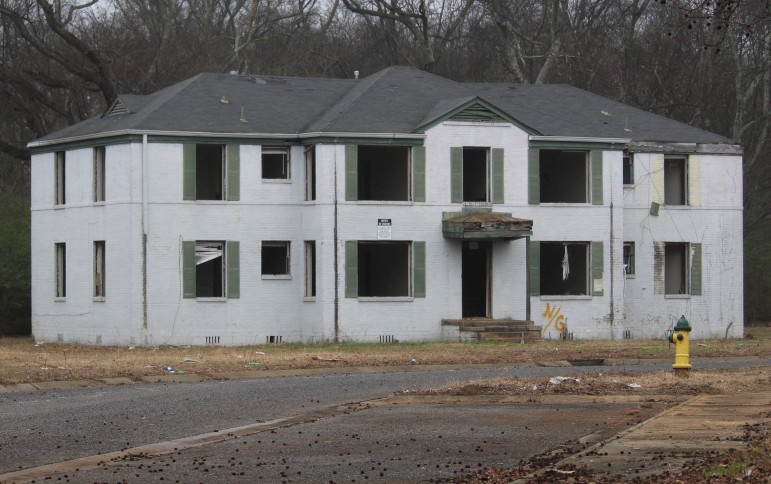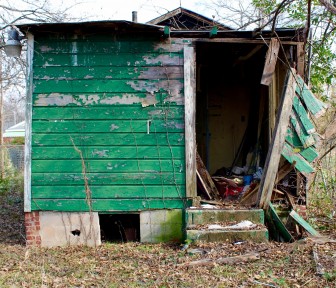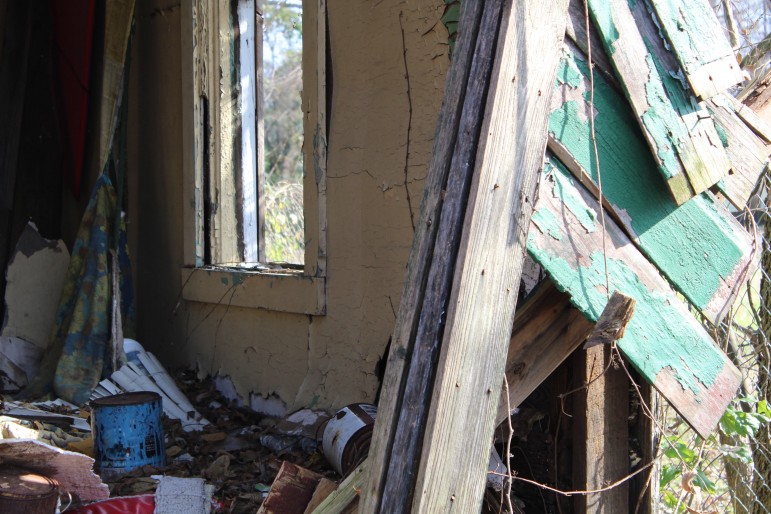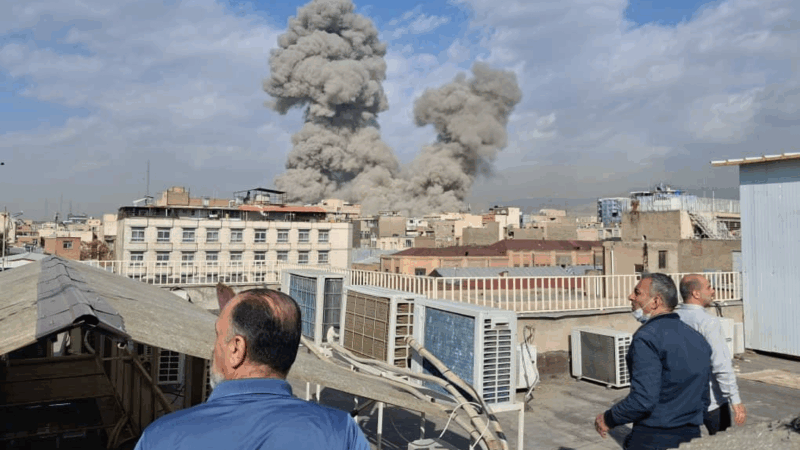Fighting Blight: More Demolitions, Tougher Code Enforcement in 2016
It’s not unusual to drive along some inner city Birmingham streets and see well-maintained homes alongside burned structures and weed-infested lots. For years, residents have complained, and, if they were lucky, some lots and abandoned property were cleared. This year, with millions more in the budget and new laws with penalties for owners who don’t maintain their property, the city is hoping to stop blight in its tracks.
Beyond Repair
Donnie is a construction worker with Bostick Trucking and Excavating. His company has a contract with the City of Birmingham to bulldoze vacant homes and buildings. He says business is good, since most of the city’s run-down properties are beyond repair. Describing the homes, Donnie says, “People go in and destroy them, and by the time you replace all the electrical and all the plumbing and all that stuff to it, you could have done built you one.”
Urban blight and abandonment may help demo companies’ bottom line, but Birmingham City Councilwoman Sheila Tyson says it is terrible for local neighborhoods. Empty buildings attract crime and make communities unsafe. Tyson points to Larkway Gardens – a massive apartment complex in the West End – as one of the worst examples. “Larkway Gardens, in 2009, they might have had 9 tenants out of 1000 apartments,” she explains. “2012, they had a person that actually set up a drug pen right in the apartments. He was the only tenant in there.”
Larkway Gardens looks like a small ghost town. Windows are boarded up or blown out. Trash and debris litter the yard. Tyson says the city has allowed it to get this bad by not properly enforcing property codes. “We have been so lenient with these landlords that we have let it go on and on and on,” she says. “If they’re not keeping their property up, it’s supposed to be condemned.”
The Road to Demolition
To condemn a building, the city must first decide that a structure is a public nuisance. Charles Williams lives near the West End, in the home where he grew up. He says the house next door caught fire years ago and the roof is falling in. The city recently labeled it as “non-condemnable” – meaning it can be repaired. Williams says he disagrees with the decision. “That’s just crazy, I mean not condemnable?” He says. “Look at it. I mean, you know, anybody in their right mind can see that it need to go (Laughs).”
The process of demolition is expensive, costing around $6,000 per property. Mayor William Bell says the city is focusing on the worst structures, hiring folks like Donnie to knock them down, and doing the best they can. “We have $6.5 million dollars. But that still doesn’t cover all the homes out there,” Bell explains.
A Future of Code Enforcement
Now the city is pulling out a new weapon to fight the issue – tougher code enforcement. John Colón, the Director of Community Development, says the city is ready to be more responsive. “The city just passed the 2015 International Maintenance Code, which gives us the teeth we need to go after offenders – folks who are not maintaining their properties,” he says.
This new maintenance code allows the city to fine homeowners up to $500 per day, per offense, forcing them to make much-needed repairs. Those who cannot afford it can access the city’s Critical Repair Program to help cover the cost. The goal is to keep properties livable and prevent more abandoned houses. Colón adds, “It starts to shape the culture of our city in terms of how we interact with property, how we treat our property, and really how we become better neighbors in our communities.”
Implementing a Cultural Change
Colón says the city plans to combine the power of code enforcement with demolition and re-development to ignite this cultural change. Most importantly, Councilwoman Sheila Tyson says the city needs to show up and start rebuilding trust with the people in her district after years of lax enforcement. “It just can’t keep happening. We can’t just sit by and allow it to happen,” she says. “I watched it happen. And so they feel like we don’t care about the area but we do.”
Tyson says demolishing Larkway Gardens is an opportunity to show the city’s new approach to blight. Once the buildings are torn down, she hopes the land can used for something positive, that can help revitalize West End. And Birmingham is behind it. Just last week the City Council approved $378,000 to demolish Larkway Gardens.
Why is the U.S. attacking Iran? Six things to know
The U.S. and Israel launched military strikes in Iran, targeting Khamenei and the Iranian president. "Operation Epic Fury" will be "massive and ongoing," President Trump said Saturday morning.
Sen. Tim Kaine calls on the Senate to vote on the war powers resolution
NPR's Scott Simon talks to Sen. Tim Kaine, D-Va., about the U.S. strikes on Iran.
Political science expert weighs in on Iran’s nuclear program in light of U.S. strikes
NPR's Scott Simon speaks to Ariane Tabatabai, the Public Service Fellow at Lawfare, about U.S. attacks on Iran and how President Trump's calls for regime change might be received there.
Week in Politics: Does Trump have political support for his actions in Iran?
We look at what President Trump's decision to attack Iran means, what kind of support he has in Iran and what this moment means for his administration.
Unlocking the secrets of an ancient plague
The first historically recorded pandemic is believed to have struck the walled city of Jirash, in what is now modern-day Jordan, in the 7th century. A new study reveals details about those who died.
Panic, fury, and some hope, in Iran as U.S. launches strikes
In Tehran, panicked residents rushed home to shelter and terrified children poured out of classrooms as U.S. air strikes hit the capitol.






